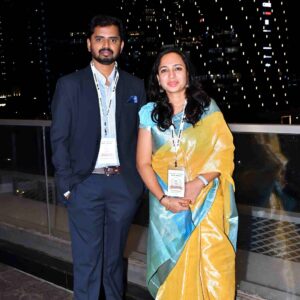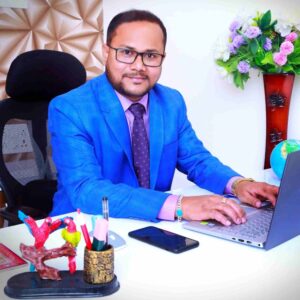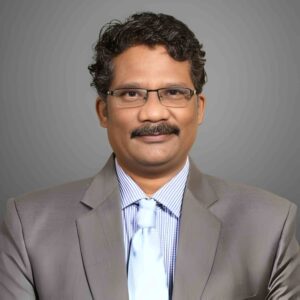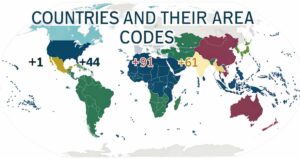Healthcare for All, Vaibhav Bagawe’s Strategy for Merging Tech with Philanthropy
5 min read
Mumbai, India – In a nation celebrated for its medical advancements, the paradox of healthcare affordability persists as a silent crisis. Millions of Indians face daunting barriers to quality care, with rising costs pushing essential treatments out of reach for the underprivileged. Yet, amidst this challenge, a quiet revolution is taking shape—one driven by individuals blending industry expertise with a passion for social good. Among them is Vaibhav Satchidanand Bagawe, a pharmaceutical professional whose efforts are reshaping access to healthcare in India.
The India Prime Times team recently met Vaibhav during a visit to his charitable hospital in Mumbai, where his dedication to affordable healthcare left an indelible mark. A New Technology Manager in the pharmaceutical sector, Vaibhav brings a unique perspective to the table, merging cutting-edge innovation with a deep commitment to community welfare. As the founder of SATVIKDAAN Charitable Trust Foundation and DIVINE WINSPIRE Foundation, he is tackling one of India’s most pressing issues: ensuring that quality healthcare isn’t a luxury reserved for the affluent.
A Crisis in Focus: Healthcare Affordability in India
India’s healthcare landscape is a study in contrasts. While urban centers boast state-of-the-art facilities, rural and underserved communities often lack basic medical services. According to recent studies, out-of-pocket healthcare expenses drive over 50 million Indians into poverty annually. This disparity has sparked a growing conversation about how technology, policy, and philanthropy can bridge the gap—a conversation Vaibhav is actively shaping.
During our discussion, Vaibhav emphasized the stakes. “Access to healthcare shouldn’t depend on your income,” he told the India Prime Times team. “We’re seeing incredible advancements in medicine, but if they don’t reach the people who need them most, what’s the point?”
From Pharmaceuticals to Philanthropy
Vaibhav’s journey is rooted in his professional expertise. Holding an MSc in Inorganic Chemistry from the University of Mumbai, he has carved a niche in the pharmaceutical industry, specializing in integrating new technologies to streamline operations. His work ensures compliance with rigorous standards like Good Laboratory Practices (GLP) and Good Manufacturing Practices (GMP), while driving efficiency in processes such as High-Performance Liquid Chromatography (HPLC). Yet, it’s his shift from corporate success to social impact that defines his story.
The turning point came years ago with the loss of a close friend, whom Vaibhav refers to as Jay (name changed for privacy). Diagnosed with cancer, Jay delayed treatment due to financial constraints—a decision that proved fatal. “That experience broke something in me,” Vaibhav shared. “I couldn’t stop thinking about how many others were suffering the same fate.”
Determined to act, Vaibhav channeled his grief into purpose, founding a charitable hospital that today serves 4,000 to 5,000 patients monthly. “We wanted to create a space where no one has to choose between their health and their family’s survival,” he said.
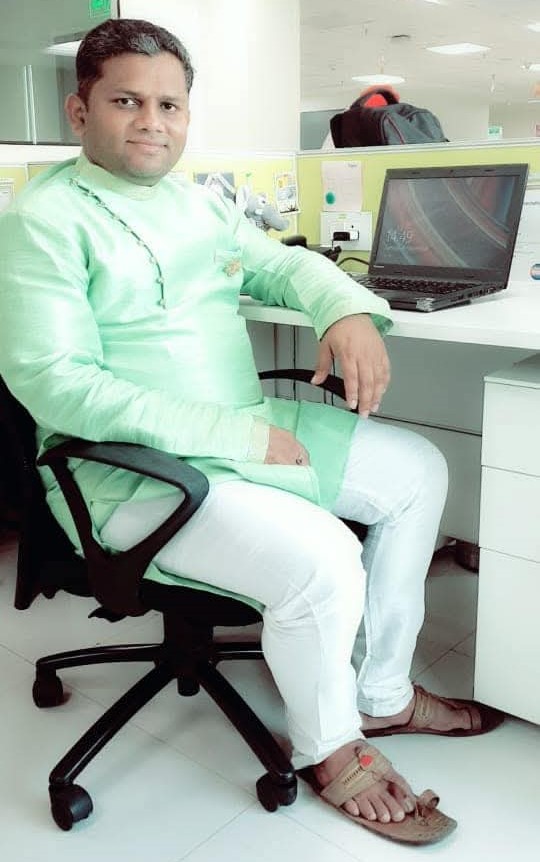
Building a Lifeline: The Charitable Hospital
The hospital, operated under his charitable trusts, offers affordable consultations, diagnostics, and treatments—a lifeline for those priced out of private care. On the day of our visit, the India Prime Times team witnessed a bustling facility where doctors and staff worked tirelessly to serve patients from all walks of life. From elderly patients receiving free check-ups to young parents seeking care for their children, the impact was palpable.
One story stood out: Waman Sonawane, a 58-year-old daily wage worker, arrived at the hospital struggling with chronic respiratory issues. Unable to afford private treatment, he feared losing his ability to support his family. “The doctors here didn’t just treat me—they gave me my life back,” Waman told us, his voice thick with emotion. With timely care and medication, he’s now back to work, breathing easier in more ways than one.
Beyond Treatment: Engaging Communities
Vaibhav’s vision extends beyond the hospital walls. Recognizing that affordability alone isn’t enough, his team has embraced community outreach. “In the beginning, we assumed people would find us because our services were cheap,” he admitted. “But we learned that awareness and trust are just as critical.”
To bridge this gap, the trusts distribute pamphlets door-to-door, organize free health camps, and partner with local leaders to spread the word. On occasions like Chhatrapati Shivaji Maharaj Jayanti, they host camps in areas like Kalwa and Bhandup, offering free medical check-ups to honor the warrior king’s legacy of a strong society. “It’s about meeting people where they are,” Vaibhav explained.
These efforts have paid off. During our visit, we saw families lining up for consultations, many learning about the hospital through word-of-mouth or a pamphlet handed to them by a volunteer. “Seeing their gratitude—it’s what keeps us going,” Vaibhav said with a smile.
Lessons in Resilience and Collaboration
Running a social enterprise isn’t without hurdles, and Vaibhav is candid about the lessons learned. “We faced funding challenges early on,” he recalled. “Corporate sponsors weren’t lining up as we’d hoped.” Instead of retreating, his team adapted—using storytelling to highlight patient outcomes and building personal connections with donors. The strategy worked, attracting CSR partnerships that now sustain the hospital’s growth.
Vaibhav draws inspiration from Ryan Holiday’s The Obstacle Is the Way, a book he credits with shaping his approach. “Resilience isn’t just pushing through—it’s adapting,” he noted. “Every setback is a chance to rethink and improve.”
He also sees collaboration as the future of affordable healthcare. “NGOs can’t do it alone,” he argued. “We need businesses to step up through CSR, and policymakers to support innovations like telemedicine.” He points to digital platforms as a game-changer, capable of connecting specialists to remote patients at a fraction of the cost—if infrastructure and awareness can catch up.
A Call to Action
Vaibhav’s work is part of a broader movement to rethink healthcare in India. As technology races forward—think AI diagnostics and telehealth—the challenge is ensuring these tools benefit all, not just the privileged few. Value-based care models, which prioritize patient outcomes over service volume, are gaining traction globally, and experts suggest India could adapt them to reduce costs without sacrificing quality.
Yet, regulatory roadblocks and inadequate infrastructure remain hurdles. Vaibhav urges stakeholders to collaborate on frameworks that balance innovation with accessibility. “Imagine a system where a farmer in a village can consult a top doctor via video call,” he mused. “That’s the potential we’re working toward.”
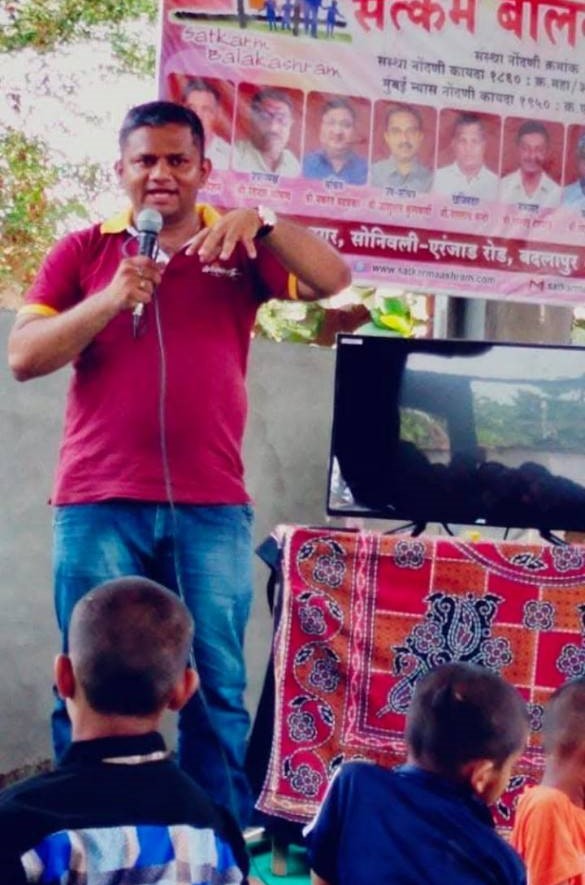
A Lasting Impact
As we wrapped up our conversation, Vaibhav’s passion was unmistakable. “Every patient who walks out healthier is a victory,” he said. “But the real win is changing how we think about healthcare as a society.”
The India Prime Times team left inspired by Vaibhav’s dual role as a pharmaceutical innovator and a champion for the underserved. His story isn’t just about one man—it’s a glimpse into the power of industry expertise meeting human compassion. For those moved by his mission, Vaibhav welcomes support, whether through partnerships, sponsorships, or simply spreading awareness.
In a country grappling with healthcare inequities, initiatives like Vaibhav’s offer hope—and a blueprint for change. As India strides toward a future of medical excellence, the question remains: how can we ensure no one is left behind? For Vaibhav Satchidanand Bagawe, the answer lies in action, adaptability, and an unwavering belief that healthcare is a right worth fighting for.

